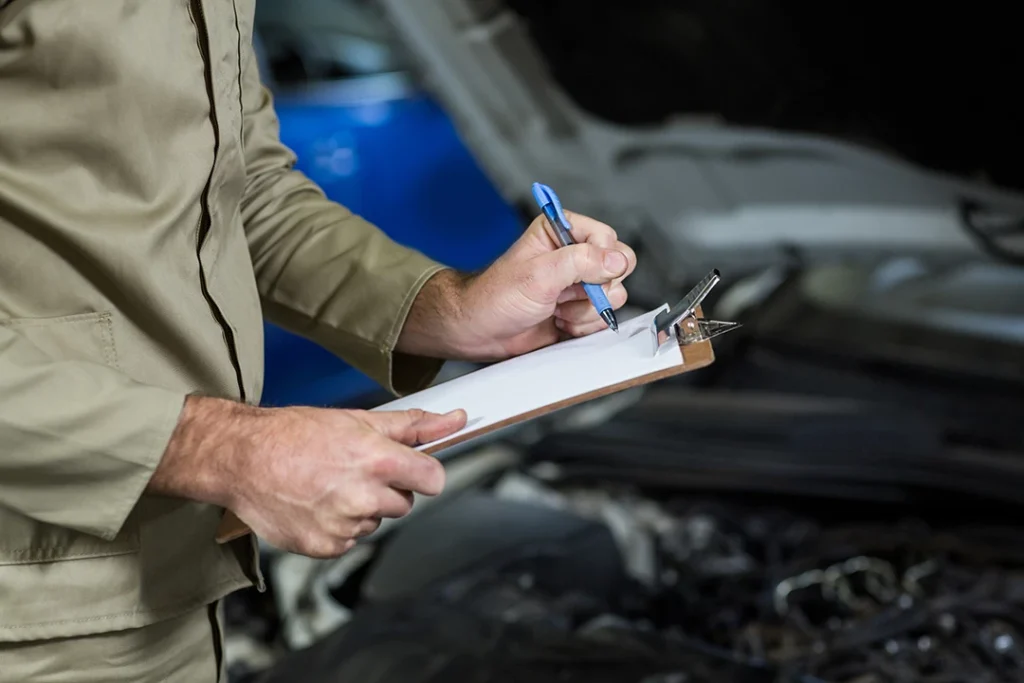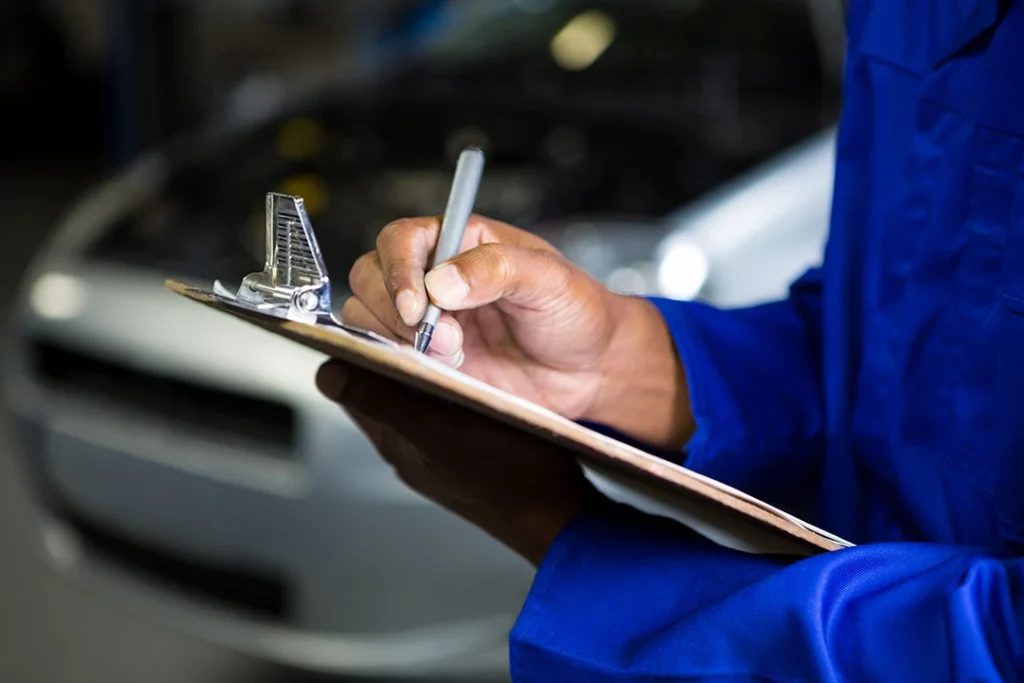Buying a used car can be exciting, practical, and—let’s be real—kind of nerve-wracking. There’s a lot to love about used cars: they’re more affordable, depreciate slower, and often come with surprisingly good features. But here’s the thing—if you don’t inspect it properly before you buy, you could be driving off with someone else’s problems.
Knowing how to inspect a used car can help you spot warning signs early and avoid throwing your money at a lemon. In this guide, we’ll walk you through every step of a proper inspection and explain why a professional pre-purchase auto inspection in North Forest from Texas First Auto Inspections can give you peace of mind and real answers.
Why a Used Car Inspection Matters
Used cars often come with a story—and not all of it is in the Carfax report. A vehicle might look great on the outside, but what’s under the hood or beneath the car might be hiding costly surprises.
That’s why an inspection isn’t optional—it’s essential. Whether you’re buying from a friend, a dealership, or a classified ad, an inspection gives you an honest look at what you’re really paying for. It’s your protection against hidden repairs, false advertising, or even safety hazards.
What Is a Pre Purchase Auto Inspection?
The Goal of a PPI
A pre purchase auto inspection is a comprehensive, third-party evaluation of a used vehicle before you commit to buying it. Unlike an oil change or basic check-up, a PPI dives deep into the car’s mechanical, cosmetic, and structural condition.
The goal? Spot hidden issues, uncover past damage, and give you the facts to make an informed decision.
Who Should Get One?
If you’re buying a used car, you need a PPI—simple as that. Whether it’s a $4,000 commuter car or a $40,000 luxury vehicle, a pre-purchase auto inspection can save you thousands in unexpected repairs.
When to Schedule a PPI
Schedule a PPI before any money changes hands. Ideally, you’ll get the seller’s permission to bring the car to a trusted inspection service like Texas First Auto Inspections, or they’ll allow a mobile inspection at the vehicle’s location.
What You Need Before You Start the Inspection
Checklist and Tools
You don’t need to be a mechanic to do a basic visual inspection. Bring these tools to help:
- Flashlight (for dark corners and undercarriage)
- Tire tread depth gauge
- OBD-II scanner (if you have one)
- Paper towel or rag for fluid checks
- Notebook or phone to record issues
Questions to Ask the Seller
Don’t just rely on what you see—ask these key questions:
- How many previous owners?
- Was the car ever in an accident?
- Do you have service records?
- Has the car had any major repairs?
- Why are you selling it?
You’ll be amazed at what sellers reveal just from honest conversation.

Exterior Inspection: First Impressions Count
Body Panels and Paint
Walk around the car slowly. Are the doors and panels evenly aligned? Check for ripples in the paint, mismatched shades, or overspray, all of which can signal accident repairs or bodywork.
Windshield, Windows, and Lights
Look for cracks, chips, or starburst damage. Check that all lights work and lenses are clear—not foggy or filled with condensation.
Tires and Wheel Condition
Tires should match in brand and wear evenly. Uneven wear can signal alignment issues or suspension problems. Look for cracks, bulges, or low tread.
Interior Inspection: What’s Going on Inside?
Seats, Upholstery, and Smell Test
Check for excessive wear, stains, or sagging. A strong air freshener? That could be hiding a moldy smell or smoke damage. Trust your nose.
Dashboard Functions and Electronics
Test everything. Radio, infotainment, windows, locks, interior lights, sunroof, USB ports—don’t skip a single switch or button.
Air Conditioning and Heat
Let the A/C run for a few minutes. Is it blowing cold? Then test the heat. Weak airflow or strange odors could mean clogged filters or bigger problems.
Under the Hood: Mechanical Check-Up
Engine Fluids and Leaks
Pull the dipstick—check the oil color. Dark oil isn’t always bad, but sludge or metal flakes are warning signs. Look around the engine bay for leaks or fresh gunk.
Battery Condition and Corrosion
Check the battery terminals for corrosion. A bloated battery or cracked casing needs replacement.
Belts, Hoses, and Radiator
Belts should be free of cracks, and hoses should be flexible, not brittle. Check the radiator for rust and proper coolant level.
Oil Cap and Dipstick Clues
Remove the oil cap—look for milky residue, which could indicate coolant in the oil (a potential head gasket issue).
Under the Car: What’s Happening Beneath
Check for Rust and Structural Damage
Surface rust on older cars is normal, but extensive rust or holes in the floor pan, frame, or fuel tank is a serious concern.
Suspension and Exhaust System
Push down on each corner of the car. It should bounce once or twice—no more. Listen for clunks or creaks when driving, and check for exhaust leaks or hanging parts.
Brake Lines and Fluid Leaks
Crawl under or use a mirror to inspect the brake lines and calipers. Are they dry? Any sign of leaking brake fluid is a red flag.
The Test Drive: The Ultimate Truth Teller
Engine Start-Up and Idle
Start the engine cold. Does it fire up cleanly? Any smoke from the tailpipe? Let it idle and listen for knocking, ticking, or unstable RPMs.
Steering, Braking, and Suspension Feel
Does the car pull to one side? Do the brakes feel squishy or grind? Does the ride feel smooth or bouncy? These issues matter—and are expensive to fix.
Transmission and Shifting Smoothness
An automatic transmission should shift effortlessly. A manual should go into gear cleanly. Any hesitation, jerking, or slipping? Walk away.
Road Noise and Ride Comfort
Turn the radio off and listen to the road. Loud hums, rattles, or vibrations can point to wheel bearing problems or worn suspension.
Red Flags to Watch Out For
Inconsistent Maintenance History
No oil change receipts? No service records? That’s a gamble. A well-maintained car usually has the paperwork to prove it.
Unusual Noises, Smells, or Vibrations
Strange noises or smells aren’t just annoying—they’re signals that something is off. Listen closely and trust your instincts.
Mismatched Parts or Paint
Different-colored panels or new parts in odd places can mean previous accident repairs. That’s not always bad—but it’s something to ask about.
Why Use a Professional Service in North Forest?
Even if you know what to look for, a trained eye sees more. A professional pre-purchase auto inspection near North Forest residents rely on more than just checking boxes—it’s about protecting your investment.
What Texas First Auto Inspections Offers
At Texas First Auto Inspections, our certified technicians perform thorough inspections that include:
- Mechanical diagnostics
- Suspension and brake analysis
- OBD-II scanning
- Undercarriage and frame check
- Cosmetic and electrical assessment
- Full digital report with photos and videos
Benefits of a Pre Purchase Auto Inspection Near North Forest Drivers Trust
- Independent, unbiased evaluations
- Leverage for negotiating price
- Confidence in your purchase
- Mobile inspections for added convenience
- No surprises after the sale
We’ve helped hundreds of North Forest drivers avoid costly mistakes—and we’re here to help you too.

How to Schedule a PPI in North Forest
Questions to Ask Your Inspector
- How detailed is the report?
- Do you check for prior accident damage?
- Do you offer mobile inspection services?
At Texas First Auto Inspections, the answer is “yes” to all of the above.
What to Expect After the Inspection
You’ll receive a same-day digital report complete with photos, videos, and expert notes. If there’s anything wrong, we’ll break it down in plain English—so you can make the best decision possible.
Texas First Auto Inspections Serving The North Forest Community And Beyond In Houston
Texas First Auto Inspections is dedicated to serving the diverse needs of the local community of Houston, including individuals residing in neighborhoods like North Forest. With its convenient location near landmarks such as the NorthView Park and major intersections like Forest Way Dr. and Mistywood Dr. (coordinates: 30.00094351957637,-95.42867069662375), we offer pre-purchase auto inspection Houston services.
Get Pre Purchase Auto Inspection At North Forest Now
Navigate From North Forest To Texas First Auto Inspections Now
Final Thought
Buying a used car doesn’t have to be risky. When you know how to inspect a used car—and when to call in a professional—you’re in control. Skip the guesswork and rely on the trusted experts at Texas First Auto Inspections for your pre-purchase auto inspection near North Forest needs.
Before you buy, inspect. You’ll thank yourself later.
FAQs
1. Can I get a mobile inspection if the car is at the seller’s house or dealership?
Yes. Texas First Auto Inspections offers mobile inspections anywhere in North Forest—whether it’s a driveway, car lot, or private seller’s home.
2. How long does the inspection take, and when do I get the results?
Most inspections take 1–2 hours. You’ll get a full digital report the same day, delivered to your email or mobile device.
3. Is a pre-purchase inspection necessary for newer vehicles?
Absolutely. Even newer cars can have hidden damage, prior accidents, or mechanical issues. A PPI protects your investment regardless of the car’s age.
4. What if the inspection finds serious problems—can I cancel the purchase?
Yes, and that’s exactly why the inspection is valuable. It gives you the option to walk away or negotiate repairs or pricing with full knowledge.
5. How do I book a pre-purchase auto inspection in North Forest?
Just contact Texas First Auto Inspections online or by phone. You can choose in-shop service or schedule a mobile inspection at your convenience.





